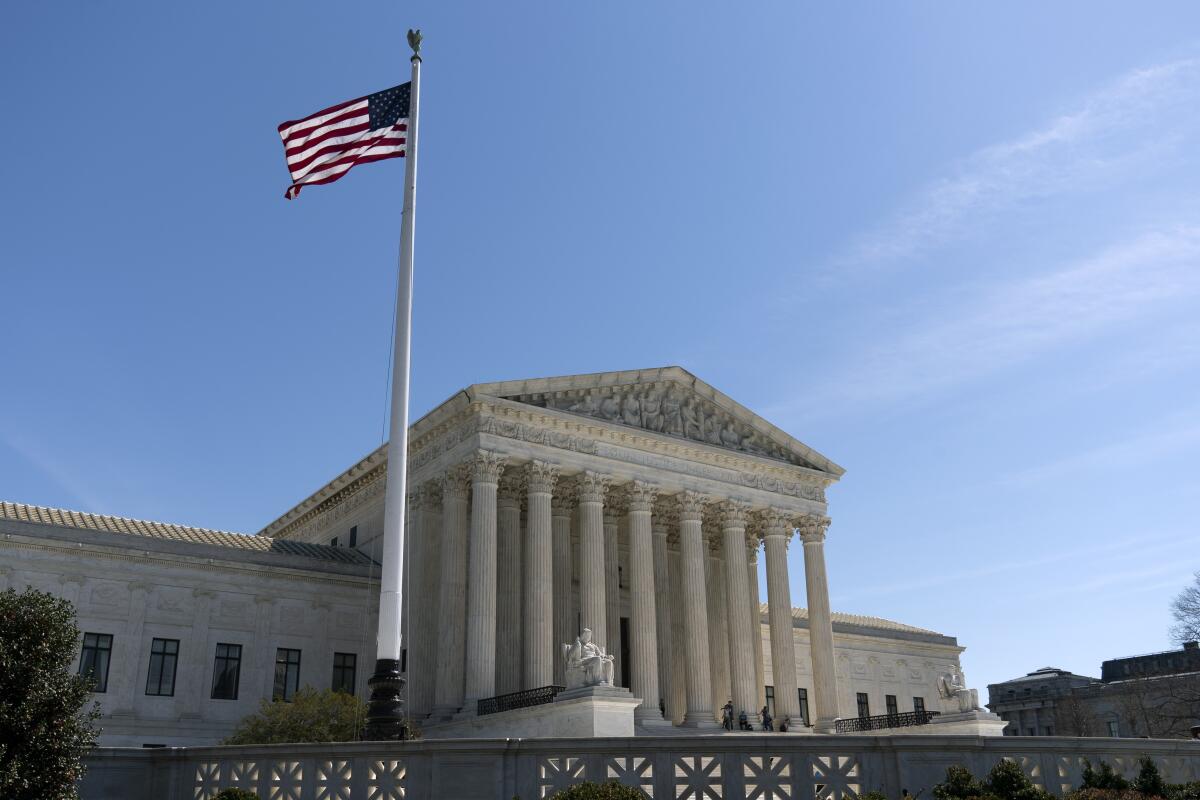Letters to the Editor: The dueling dogmas dividing Supreme Court justices

- Share via
To the editor: The real conflict on the U.S. Supreme Court is one between the political systems of federalism and a unitary form of government. (“As a new Supreme Court term begins, prepare for the law to move even more to the right,” Opinion, Oct. 2)
The current Supreme Court is deciding issues according to the federalist concept that the government in Washington has only those powers specifically enumerated in the U.S. Constitution. If the power is not explicitly enumerated, then the federal government cannot act in that area.
In reality, for the last century the federal government has acted like an unitary national government by exercising powers, whether enumerated or not. The root problem is that the Constitution has not been updated by amendment to explicitly empower the government in Washington to act in the areas of health, welfare, education, environment and so forth.
The majority on the current Supreme Court are acting and deciding as federalists in a present-day America whose actual reality is different.
Brian Bloedel, Accomac, Va.
..
To the editor: A now-distant generation of Americans cast off the shackles of monarchy and declared itself free.
George Washington and Thomas Jefferson would be shocked to find that we now labor under a new nobility, a Supreme Court that laughs at the law and feels free to reshape the country to match its crabbed and narrow views, under the guise of “originalism.”
These princes and princesses of the realm have seized power that appears nowhere in the Constitution. Congress can, and should, reread the Constitution and turf them out.
Steven Morris, Torrance
..
To the editor: Where a judge has ruled in a case and it is later discovered that they lied about their bias and conflicts, the ruling can be reheard or dismissed.
With several Supreme Court justices being dishonest during their confirmation hearings regarding following precedent, every case that they voted on that overturned a precedent should be set aside and either reheard or simply dismissed by a future court.
A corrupt judge’s opinion should not stand.
Steven R. Odell, Huntington Beach






